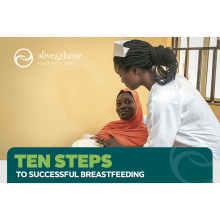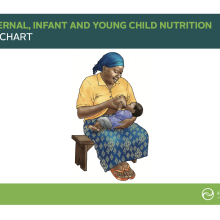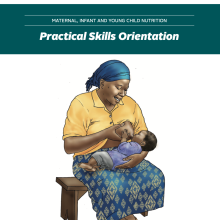Journal article
Oct 04 2023

Promoting Respectful Maternity Care by Reducing Unnecessary Episiotomies: Experiences from Centers of Excellence for Breastfeeding in Vietnam (Vu D, Ta B, et al. Healthcare. 2023)
Guide/Manual
Sep 25 2023

Workforce Nutrition Guidebooks in Vietnamese
Workforce nutrition programs are a set of interventions advocated by the Workforce Nutrition Alliance, designed to work through the existing structures of the workplace to address fundamental aspects of nutrition amongst employees or supply chain workers.
Journal article
Sep 07 2023

Feasibility and impact of school-based nutrition education interventions on the diets of adolescent girls in Ethiopia: a non-masked, cluster-randomised, controlled trial (Kim SS, Sununtnasuk C, et al, The Lancet Child & Adolescent Health. 2023)
Adolescence is a critical period of physical and psychological development, especially for girls, because poor nutrition can affect their wellbeing as well as that of their children.
Poster/Graphic
Aug 17 2023

Ten Steps to Successful Breastfeeding Poster
Intended for use in healthcare facilities providing maternity services and care for newborn infants, this poster outlines 10 key steps to successful breastfeeding.
Job aid
Aug 17 2023

Alive & Thrive Nigeria MIYCN Flip Chart
This flip chart is intended for use as a job aid by health workers to advise pregnant and breastfeeding mothers on best practices in maternal nutrition, breastfeeding, and complementary feeding.
Guide/Manual
Aug 16 2023

Alive & Thrive Nigeria MIYCN Practical Skills Training Manual
This manual can be used as part of an in-service orientation/training for newly employed or deployed health professionals working in MIYCN. It can also be used to train existing primary healthcare (PHC) workers on essential MIYCN services that can be integrated into PHC services.

